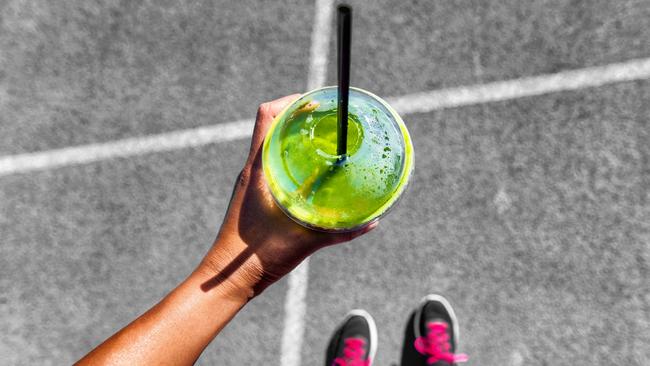Too sluggish to exercise? Your diet could help
If you’re inspired to make this your best year yet, the advice is to make continual small but important changes that become daily habits.

What we eat and drink, and how much, plays a significant role in our health and wellbeing, not just now but also for our future selves, and provides us with the energy and nutrients our bodies need to heal and grow.
That’s important at the best of times, but given we are living longer than past generations, it’s paramount we spend those extra years healthy so they can be enjoyed.
Creating good diet and lifestyle habits now can help to reduce the risk of developing preventable diseases, including some cancers and type 2 diabetes, and can improve your mental wellbeing. Those good habits include a well-balanced diet that reduces ultra-processed foods, limits alcohol consumption and incorporates activities that keep our minds and bodies active.
This is week four of our Walking Series in collaboration with the Australian Heart Foundation and the focus is on diet and exercise. In week four, the goal is to complete four moderate walks of 35 minutes each, plus stretching, and one strength training session this week.
Jemma O’Hanlon, a senior dietitian with the Heart Foundation, says now is also a good time to focus on your diet.
“Food plays a big part in fuelling our bodies to perform at our best when it comes to exercise, whether that’s a walk or run or anything between. So if we start with basic good nutrition then we can’t really go wrong,” she says.
According to the latest data from the Australian Institute of Health and Welfare, which provides dietary guidelines, dietary risk factors were the third leading preventable cause of ill health and premature deaths. Men are likelier to experience that disease burden than women.
“There is definitely a link between nutritious foods and better brain health and better mood; that is, the science has really been established in that space. It’s about getting the right balance of wholesome carbohydrates, lean proteins and healthy fats into our diet to fuel our brain, and give our brain the energy it needs, and also to give our muscles the energy they need,” O’Hanlon says.
Having that energy is important for maintaining an active and non-sedentary lifestyle.
O’Hanlon suggests choosing foods such as those in the Mediterranean diet is a good way because it’s about making healthier choices as opposed to depriving yourself entirely. The Heart Foundation has established its own heart healthy eating plan that closely aligns to the diet and has five pillars:
● Eat plenty of vegetables, fruit and whole grains.
● Include a variety of healthy protein-rich foods.
● Choose unflavoured milk, yoghurt and cheese.
● Include healthy fats and oils.
● Use herbs and spices instead of salt to flavour foods.
“Eating a rainbow is the key message there, and choosing whole grains instead of those refined grains. So, for example, having brown rice instead of white rice, wholegrain bread instead of white bread and wholemeal pasta instead of white pasta. Then we’ve got healthy proteins as the second pillar, which is fish, seafood, legumes and nuts,” O’Hanlon says.
“If you do fall off track, simply remember that’s just one meal or one day, and then get back on to your usual habits the next day. If people are craving sweet foods, instead of having a chocolate bar for that 3pm sugar crash, have a banana or apple or have some dried fruit and nuts. It’s just about trying to find those little swaps.
“If you follow that heart healthy eating pattern you’re going to not only reduce your risk of heart disease, type 2 diabetes and many cancers but you’re going to fuel your body with the right goodness.”

A healthy and nourished body also will prepare you better for exercise. Researchers say walking is a strong base to start with because it is largely accessible, cheap, good for your cardiovascular health and you can set your own pace. To get more out of a walk, they recommend interval training, where you increase your walking pace in short bursts.
Ultimately, O’Hanlon says it’s about establishing good food and exercise routines to help you live well for longer.
Royal Australian College of General Practitioners president Michael Wright urges people to make small but significant changes to create healthy daily habits to ensure they live and age well.
“Over two-thirds of Australians are living with overweight or obesity and it is now a leading risk factor for disease nationally,” he says.
“And many of us are tempted to try the latest crash diet. But we know that most of the quick-fix diets are ineffective in the long run.
“Making small, sustainable changes to your diet and exercise routine is a much more effective approach. Your GP can provide a safe space to discuss your health needs and take the steps necessary to improve your health and wellbeing, beyond just watching the scales.”






To join the conversation, please log in. Don't have an account? Register
Join the conversation, you are commenting as Logout